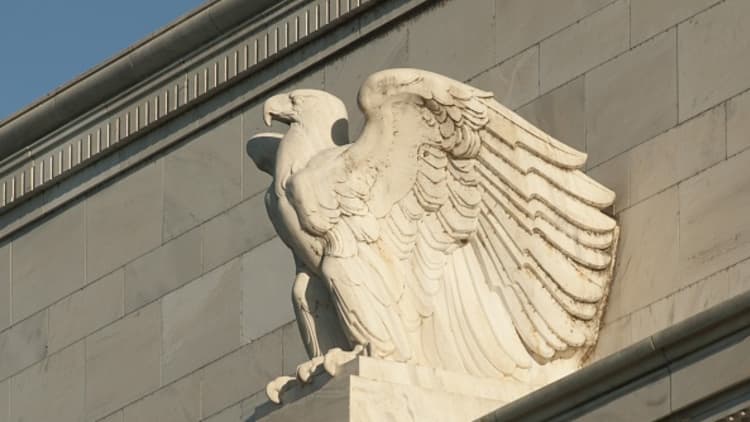
Richard Fisher, former Dallas Fed president, told CNBC on Tuesday that he would like to see central bankers get interest rates up to 3 percent in case economic growth really slows and they need to cut the cost of borrowing money.
Fisher expects the Federal Reserve next week to hike its benchmark fed funds rate, what banks charge each other for overnight loans, by a quarter point for the fourth time this year. That would bring the target range up to 2.25 to 2.5 percent.
Getting to Fisher's 3 percent threshold would mean additional rate increases next year.
After its latest hike in September, the Fed had forecast three moves in 2019. But with signs of pockets of weakness in the economy and recent turmoil on Wall Street, the market puts low odds on any hikes next year.
"Central banks are no longer running accomodative monetary policy. [But] they have yet to put enough nuts in the tree before winter comes," Fisher said in a "Squawk on the Street" interview. "If we don't get enough nuts in the tree — that is interest rate increases — you get a downturn [in the economy] what do you have to turn to? That's going to be the real issue. That's what I worry about in the long run."
Fisher, currently a senior advisor at Barclays, said the underlying economy as of now remains solid. But the cycle will eventually turn, he added, arguing that if rates are not high enough there won't be adequate cushion to lower them should the Fed need to shift into a supportive role again. "I would like to see them get up to 3 [percent.] At the same time, you're reducing the balance sheet. And that gives you room."
However, in a CNBC interview Monday, former Trump economic advisor Stephen Moore disputed the strategy that Fisher and others advocate, saying, "The Fed is what's going to put us in the next recession if they keep raising."
"The only thing that really worries me about the economy right now is what the Fed is doing," said Moore, co-author with conservative economist Art Laffer of the book "Trumponomics."


